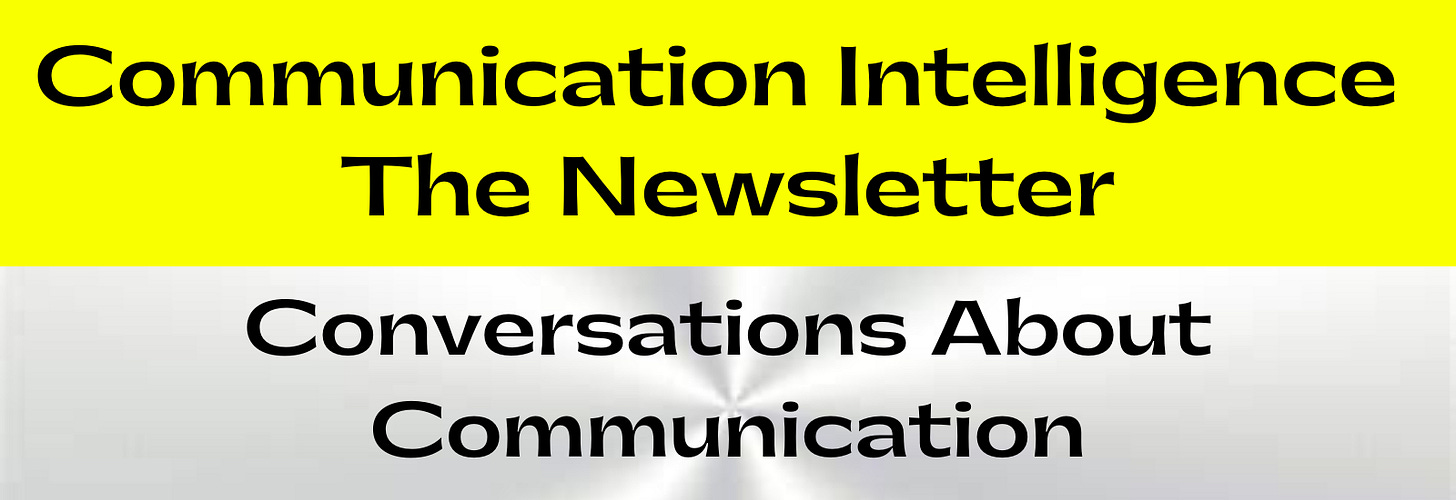James: 'It's So Hard to Take the High Road'
Yet it can be done with knowledge, understanding and a professional, skilled strategy to successfully move forward
Often, choosing not to react or respond negatively when we experience criticism that is objectively false or exaggerated, is a tall task.
It’s simply not easy — or desirable emotionally — to take the high road.
It’s not as straight forward, emotionally, as "that's not true, we can take the high road, it’s a choice.” The reality is that knowledge, skills and power can prove painfully challenging to gain and implement, at least at certain times, to "be the bigger person” when we are enduring deep hurt that by all appearances seems to be from a lack of facts about us.
Recently, a well-known figure, NBA superstar and future Basketball Hall of Fame inductee LeBron James, commented, “It’s so hard to take the high road.”
His comment was the inspiration for this article. Many people would agree with James.
This type of situation is one that many of us may have faced and if not, might experience sometime in our life, professionally or personally.
“Choosing the high road often requires a strategic, practiced approach as these situations can usually be emotionally charged or catch us off guard,” Kenyokee Crowell, a senior healthcare executive, coach and consultant at Prodigy Advisors, says.
Then there is the variable of who we are, our expectations of human interaction and the particular meaning we attach to the comment.
“Whether it is difficult or not to take the high road depends on the individual’s values, circumstances and the specific situation they find themselves in,” says Seth Eisenberg, the president and CEO at PAIRS Foundation (also know as the Practical Application of Intimate Relationship Skills).
“Some may find it challenging to choose the morally or ethically superior path in certain situations, while others may prioritize it instinctively. Therefore, the difficulty of taking the high road can vary widely from person to person and situation to situation.”
Our emotions are influenced when words feel like an assault against us personally and especially so if they feel unfair and purely subjective.
“When your reputation is on the line,” says Amber Creamer, the CEO at Hello Life Counseling Collective, “it can be difficult to let things go.”
She explains what is happening emotionally and psychologically and how we are likely to respond.
“As much as we would like to tell ourselves that we do not care about others' opinions of us, we do,” Creamer says. “We want to be seen in the best light and some of us will do whatever we can to make that a reality. This often looks like over-communicating and trying to prove that our opinion is the right opinion.”
There may be a multitude of reasons for why taking the high road becomes the unwanted commitment and action.
“It is difficult because we are not prepared to navigate the dialogue,” Crowell says. “Because of this, we are at risk of emotion, ego or both being triggered — and discipline goes out the window.
“In business settings, this is often amplified or at least complicated by all the things we worry about — professional reputation and perceptions, if we don't stop the noise machine from leaving the station.”
“Emotional response, sense of injustice, damage to reputation, social pressure, ego and pride — and a lack of control,” Eisenberg details as variables in play when tested with not emotionally melting down and react negatively, whether aggressively or passive aggressively.
He briefly touches on and explains each point
“False or exaggerated statements about ourselves can trigger strong emotional reactions such as anger, frustration or hurt. These emotions can cloud our judgment and make it challenging to respond calmly and rationally.
“It feels unfair and unjust when others misrepresent us or our actions. This sense of injustice can provoke a defensive response, leading us to want to retaliate or defend ourselves vigorously.
“False or exaggerated claims can harm our reputation or relationships with others. The fear of being misunderstood or judged unfairly can intensify the pressure to respond assertively or aggressively.
“There may be societal or peer pressure to respond forcefully to defend our honor or integrity. This pressure can override our desire to take the high road and instead push us towards confrontation.
“Our ego and pride can get in the way of choosing the high road. We may feel the need to assert ourselves, prove our innocence, or protect our self-image, making it difficult to let go of the need to set the record straight.
“Feeling powerless over how others perceive us can exacerbate the urge to react defensively or aggressively. It can be challenging to accept that we cannot control others’ opinions or actions,” Eisenberg says.
These obstacles can be positively, effectively addressed however, he states.
“Taking the high road in such situations requires emotional maturity, self-control and a commitment to prioritizing long-term relationships and personal integrity over immediate emotional impulses,” Eisenberg declares.
“It involves choosing grace over retaliation, empathy over anger and striving for understanding rather than escalation.”
“The best way to control your emotions in these types of situations is to take a step back, take a breath and evaluate how important it is for you to address this concern,” Creamer says.
“Will it matter tomorrow or next week if this person continues to think the way that they do? If it does matter, then being real about the way it hurts our feelings is important. You can ask yourself whether you have felt a similar way before.
“If we can sit with that feeling and get to the core of why we are upset it is probably more (helpful) than the misunderstanding itself. This can help us move through the feelings more quickly by addressing them at the root,” she says.
“Learn to listen fully, mindfully and without interruption to gather all of the information,” Crowell advises. “Whether you feel (the criticism) is true or valid makes no difference at this point. The point is discerning what the other party is trying to convey and what are their motives.
“This can be extraordinarily challenging in the moment but it is essential and a key part of the strategy in these situations. We have to start here.”
She presents a structure for how to interact with curiosity.
“Query with open-ended questions. This allows you to clarify and start architecting your response,” Crowell says.
“In personal exchanges, the use of open-ended questions, versus projecting absolute responses that you feel are facts, can often be disarming to the other party. This will bring down the temperature due to it's deliberate, yet professional approach.
“The result: Emotion gets pushed to the sidelines and it often infuses a sense of awareness and accountability for what is said by both parties.
“Last, finalize your response strategy and decide on timing. Timing is as key as the strategy itself,” Crowell stresses.
“Will you get your desired results by proceeding now or do I need to show discipline and restraint and schedule the dialogue at a different time?”
Successful, impressive responses therefore are possible.
“Controlling hurt emotions and negative impulses involves adopting strategies that promote emotional regulation, self-awareness and constructive responses,” Eisenberg says. “There are some honorable ways to manage these challenging emotions:
“Pause and Reflect: Take a moment to pause before reacting impulsively. Deep breathing or mindfulness techniques can help center your thoughts and emotions, allowing you to respond more calmly and thoughtfully.
“Validate Your Emotions: Acknowledge and validate your emotions without judgment. It’s okay to feel hurt, angry, or frustrated but recognize that these emotions do not have to dictate your actions.
“Seek Perspective: Consider the situation from different perspectives.
“Try to understand why the other person may have communicated in a certain way. This can help you depersonalize the situation and reduce the intensity of your emotional response.
“Choose Empathy: Practice empathy towards the other person, even if their communication was hurtful or inaccurate. Understanding their motivations or emotions can help soften your own emotional reactions and foster a more compassionate response.
“Focus on Facts: Instead of getting caught up in emotional interpretations, focus on factual accuracy. Clarify any misunderstandings calmly and assertively, using evidence or examples to support your perspective.
“Set Boundaries: If the communication continues to be harmful or untrue, assertively set boundaries to protect yourself. This may involve calmly asserting your position or choosing to disengage from the conversation until emotions have settled.
“Practice Forgiveness: Forgiveness does not mean condoning the behavior but rather freeing yourself from the burden of negative emotions.
“Channel Energy Positively: Redirect your energy into positive activities that promote emotional well-being, such as exercise, hobbies, creative pursuits or spending time with supportive friends and family.
“Seek Support: Reach out to trusted friends, family members or a counselor to discuss your feelings and gain perspective. Talking through your emotions with others can provide validation and help you process your thoughts more clearly.
“Learn and Grow: Use the experience as an opportunity for personal growth and reflection. Consider what you can learn from the situation and how you can strengthen your emotional resilience for future challenges.
Thank you for reading this issue of Communication Intelligence.
For those interested in advertising in Communication Intelligence: Contact me at comm.intel.newsletter@gmail.com or click here to learn more about communicating your business value offering. This publication offers links, ads and sponsorships.










